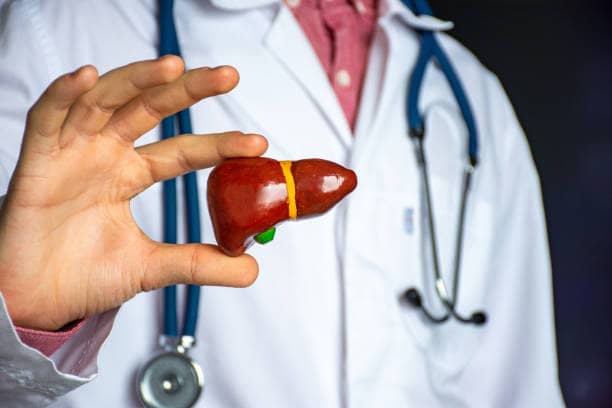Treat Genital Herpes, Genital herpes is a common sexually transmitted infection (STI) caused by the herpes simplex virus (HSV). It affects millions of people worldwide, causing discomfort, stigma, and emotional distress. While there is no cure for genital herpes, there are effective treatment options available that can help manage symptoms, reduce outbreaks, and improve the quality of life for those affected. In this comprehensive guide, we will delve into the causes, symptoms, diagnosis, and various treatment approaches for genital herpes.

Understanding Genital Herpes:
Genital herpes is primarily caused by two types of the herpes simplex virus: HSV-1 and HSV-2. HSV-1 is often associated with oral herpes, causing cold sores around the mouth, while HSV-2 is the more common cause of genital herpes. However, both types can cause either oral or genital infections.
The virus spreads through direct contact with an infected person, often through sexual activity, including vaginal, anal, and oral sex. It can also be transmitted through skin-to-skin contact with an active outbreak, even if visible sores are not present. After initial infection, the virus remains dormant in nerve cells and can reactivate periodically, leading to recurrent outbreaks.
Symptoms of Genital Herpes:
Genital herpes symptoms can vary from person to person, and some individuals may not experience any symptoms at all. Common signs and symptoms include:
- Painful Sores: Small, red bumps or blisters that turn into painful open sores. These sores can appear on the genitals, buttocks, thighs, or around the anus.
- Itching and Burning: Many individuals experience itching, burning, or tingling sensations before the appearance of sores.
- Flu-like Symptoms: Some people may develop flu-like symptoms during the initial outbreak, including fever, headache, muscle aches, and swollen lymph nodes.
- Painful Urination: Urinating can be painful when urine comes into contact with open sores.
- Vaginal or Penile Discharge: Unusual discharge from the vagina or penis can occur during an outbreak.
Diagnosis:
If you suspect you have genital herpes, it’s crucial to seek medical evaluation for an accurate diagnosis. Healthcare providers often diagnose herpes based on the physical appearance of sores and may also conduct laboratory tests, such as polymerase chain reaction (PCR) or viral cultures, to confirm the presence of the herpes simplex virus.
Treatment Options:
While there is no cure for genital herpes, several treatment options can help manage symptoms, reduce the frequency and severity of outbreaks, and decrease the risk of transmission to partners. It’s important to note that treatment decisions should be made in consultation with a healthcare provider. Here are some common treatment approaches:
- Antiviral Medications: Antiviral drugs like acyclovir, valacyclovir, and famciclovir are often prescribed to manage genital herpes. These medications can help reduce the duration and severity of outbreaks, alleviate pain and discomfort, and decrease the risk of transmission. They can be taken episodically during outbreaks or as daily suppressive therapy to reduce the frequency of outbreaks.
- Pain Relief: Over-the-counter pain relievers like ibuprofen or acetaminophen can help manage the pain and discomfort associated with outbreaks.
- Topical Creams: Some creams containing numbing agents or antiviral agents can be applied directly to the sores to provide relief.
- Home Care: Keeping the affected area clean and dry can help prevent secondary infections. Wearing loose-fitting clothing and cotton underwear can also reduce irritation.
Lifestyle and Prevention:
Apart from medical treatment to Treat Genital Herpes, there are lifestyle changes and precautions that can help manage genital herpes and prevent its spread:
- Safe Sex Practices: Consistently using condoms or dental dams during sexual activity can significantly reduce the risk of transmitting genital herpes to partners. However, it’s important to note that these precautions are not foolproof, as the virus can still be spread through skin-to-skin contact.
- Disclosure: If you have genital herpes, open communication with your sexual partners is crucial. By disclosing your status, you give your partners the opportunity to make informed decisions about their sexual health.
- Stress Management: Stress and weakened immune function can trigger herpes outbreaks. Engaging in stress-reduction techniques like meditation, exercise, and sufficient sleep can help manage outbreaks.
- Healthy Lifestyle: Maintaining a healthy diet, exercising regularly, and getting enough sleep can support a strong immune system, which may help prevent or mitigate outbreaks.
Emotional Well-being and Support:
Dealing with genital herpes can have emotional implications due to stigma and concerns about transmission. Seeking support from healthcare professionals, counselors, or support groups can be immensely helpful in coping with the emotional aspect of living with herpes. Remember that you are not alone, and many resources are available to provide guidance and comfort.
Natural Remedies and Complementary Therapies:
1.Caution against relying solely on natural remedies and uproven treatments.
2. Mention some complementary therapies that might offer relief, such as aloe vera gel and lysine supplements.
3. Emphasize the need to consult a healthcare professional before trying any alternative treatments.
Pregnancy and Genitals Herpes:
1.Discuss the potential risks of transmitting herpes to a newborn during childbirth.
2. Explain how healthcare professionals may manage herpes during pregnancy to minimize transmission.
Future Research and Vaccines:
1.Mention ongoing research in the field of genital herpes treatment and prevention.
2. Discuss the development of vaccines and their potential impact on reducing transmission of genital herpes disease.
Home Care and Management:
1.Provide tips for managing outbreaks at home, such as keeping the area clean and dry.
2. Recommended over-the-counter pain relievers to reduce the discomfort.
3. Stress the significance of avoiding sexual activity during outbreaks to prevent transmission.
Conclusion:
Genital herpes is a common STI caused by the herpes simplex virus, affecting millions of individuals worldwide. While there is no cure, medical advancements have provided effective treatments to manage symptoms, reduce outbreaks, and enhance the overall quality of life for those affected. By combining medical treatment with safe sex practices, lifestyle adjustments, and emotional support, individuals can successfully manage genital herpes and minimize its impact on their lives. As always, seeking advice and guidance from healthcare professionals is essential to make informed decisions about treatment and prevention strategies.








2 thoughts on “How to Treat Genital Herpes?”